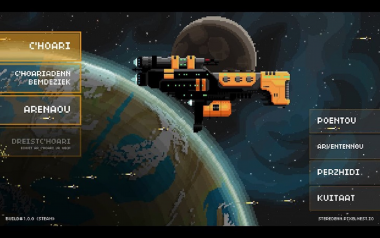Derek Lackaff, associate professor of communications and associate director of the Center for the Advancement of Teaching and Learning, was recently interviewed by the French publication La Croix about the limited catalog of video games available in minority languages.
A recent article in La Croix, a daily Roman Catholic newspaper in France with an international reach, featured insights from Derek Lackaff, associate professor of communications and associate director of the Center for the Advancement of Teaching and Learning.

Lackaff has conducted research into the limited use of minority languages by video games, and previously wrote about the strategy game Widelands, which along with being able to be played in English can be played in dozens of languages, including Catalan, Galician and Esperanto.
In the March 9 article by La Croix reporter Patxi Berhouet, Lackaff notes that game publishers generally aren’t interested in translating games into minority languages, in large part because minority language speakers are generally bilingual and also speak global languages such as English or French.
From the article (originally published in French, with a translation available here):
“For Derek Lackaff, ‘the (minority) languages still have a great interest in being present in this universe. The interactivity of the games allows a great commitment of the user with the language. It is also a way to show the new generations that these languages do not belong to the past but that they can very well serve in the contemporary world.'”


